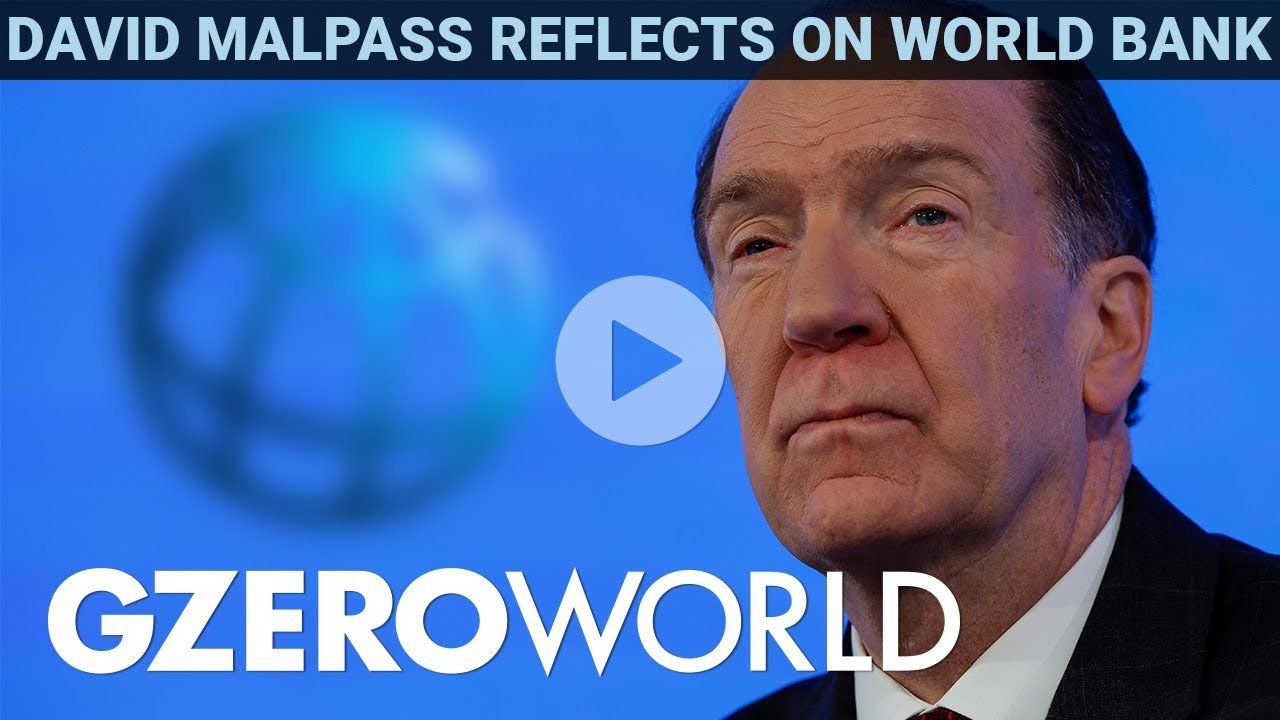GZERO World Clips
David Malpass' advice to World Bank successor: time is short

David Malpass' advice to World Bank successor: time is short | GZERO World

In his final interview as president of the World Bank Group, David Malpass spoke with Ian Bremmer on GZERO World to reflect on his time leading the global development organization and to share his advice for his successor, Ajay Banga.
Malpass became president of the World Bank in 2019 and has seen the world change significantly during his term. He says he’s proud of how the bank handled major global challenges like the COVID-19 pandemic, the war in Ukraine, and the Afghanistan evacuation. He also thinks the bank did a good job raising the alarm about an impending economic crisis: slow growth and skyrocketing global debt.
“We had a core vision that we want people in developing countries to have better lives tomorrow than today,” Malpass says.
When it comes to the insight he’d offer to the next World Bank president, Malpass has three simple words of advice: time is short.
Malpass stresses that now is the moment to really rethink fiscal and monetary policy to create a more equitable global economy, one where all the capital isn’t flowing to a centralized point. According to Malpass, part of the job of the World Bank president is to have tough conversations about the major challenges in the world, like debt and climate, to get advanced economies to take action.
“Who’s going to stand up to the advanced economies and say, ‘You’re taking all the money so there’s not enough left for the rest of the 6 billion people in the world?’”
Ian Bremmer sits down with former US Ambassador to NATO Ivo Daalder to unpack a historic shift in the transatlantic alliance: Europe is preparing to defend itself without its American safety net.
Think you know what's going on around the world? Here's your chance to prove it.
Argentina, Armenia, Belarus, Egypt, Indonesia, Jordan, Pakistan, Paraguay, Vietnam – to name only a few.
A poster featuring Andrew Mountbatten-Windsor, formerly known as Prince Andrew, is installed on a sign leading to the parking area of the Sandringham Estate in Wolferton, as pressure builds on him to give evidence after the U.S. Justice Department released more records tied to the late financier and convicted sex offender Jeffrey Epstein, in Norfolk, Britain, February 5, 2026.
British police arrested former Prince Andrew Mountbatten-Windsor today over allegations that in 2010, when he was a UK trade envoy, he shared confidential government documents with convicted sex offender Jeffrey Epstein.